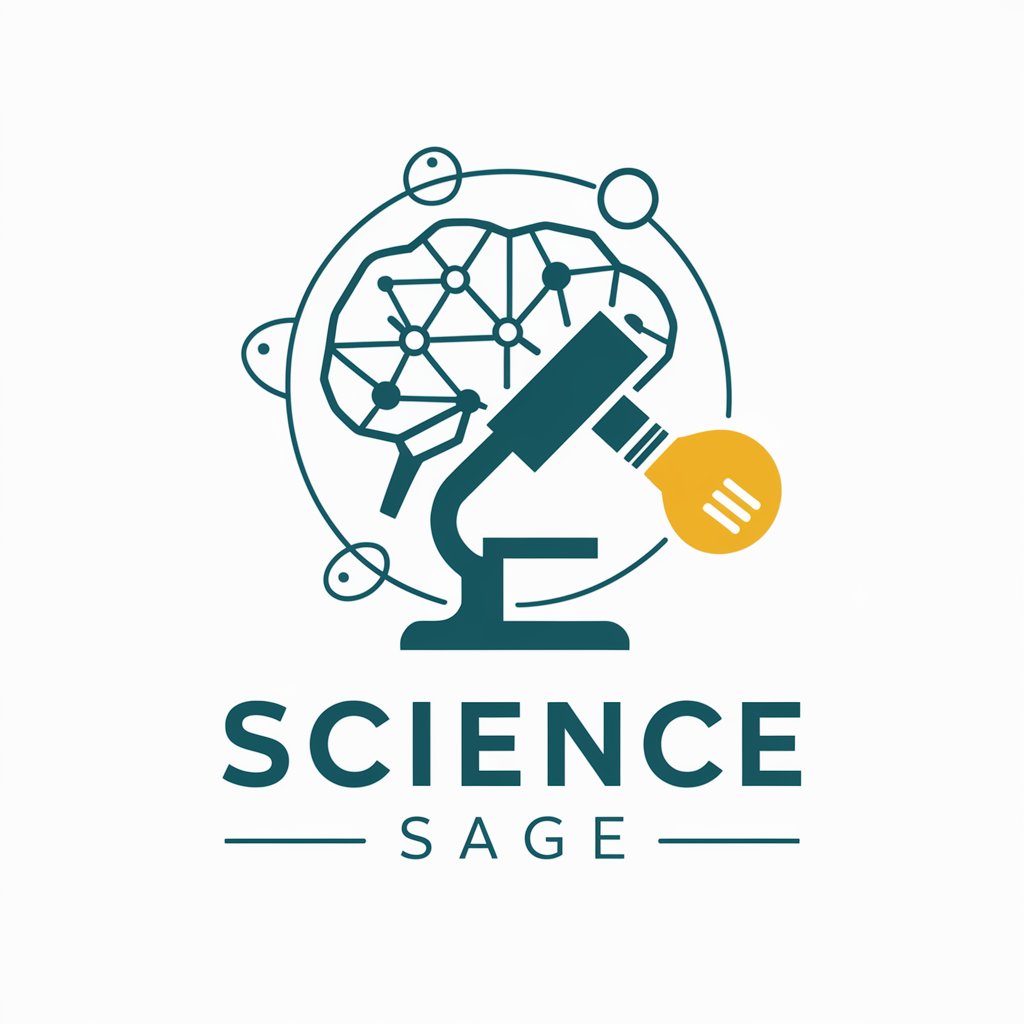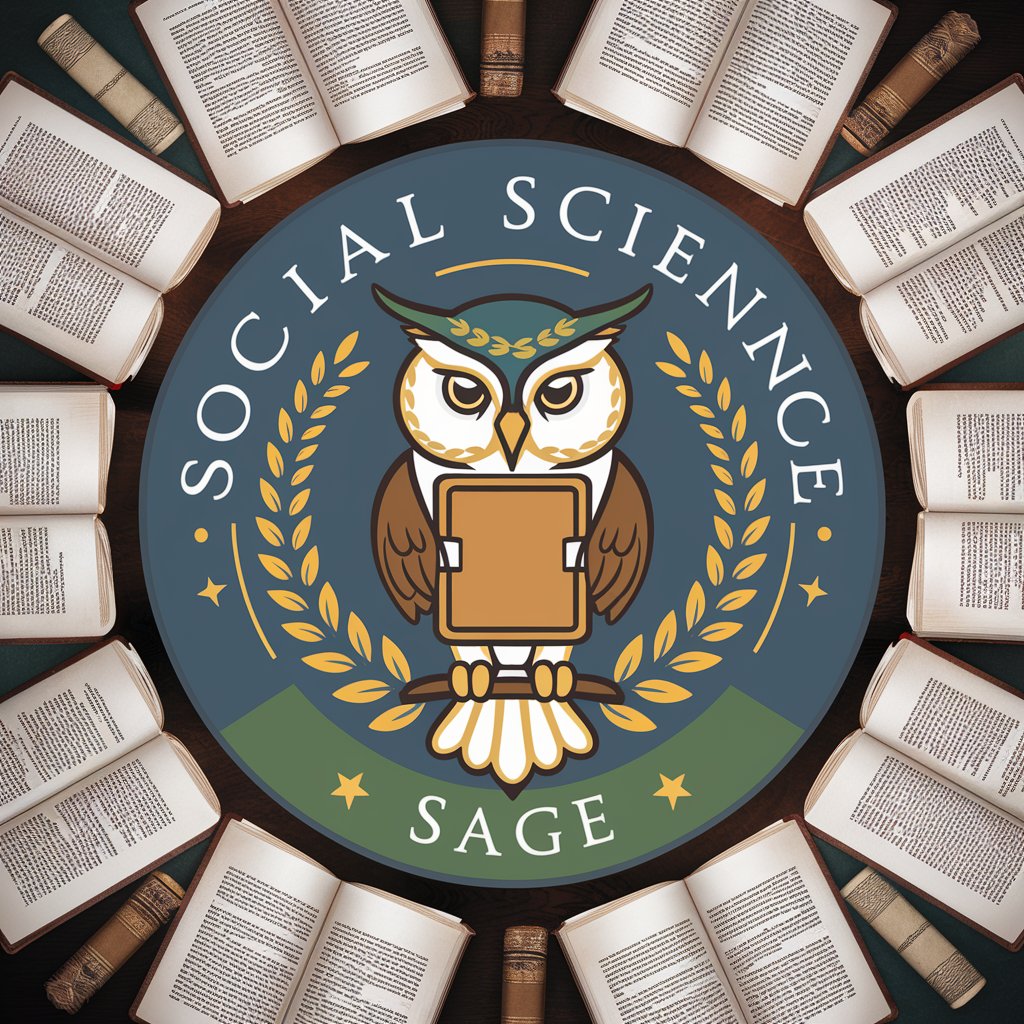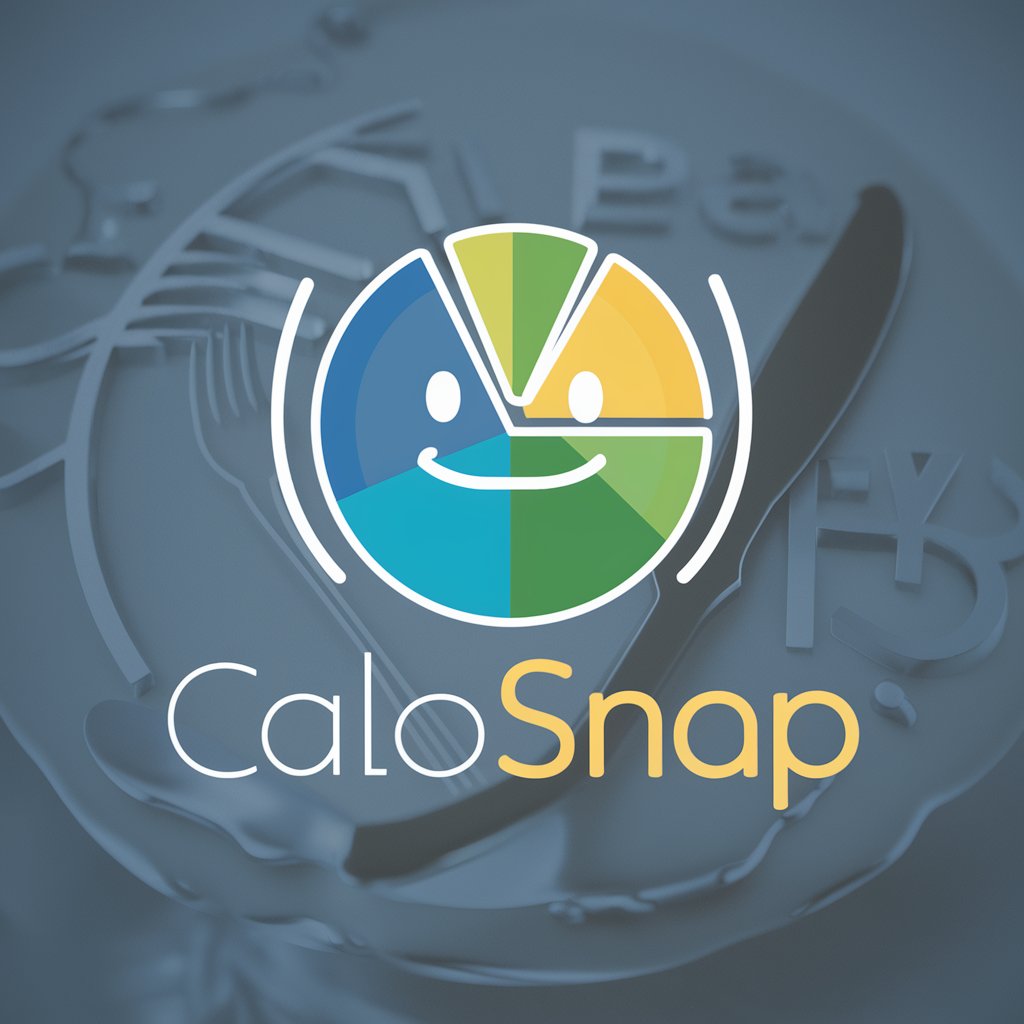Science Sage - AI-Powered Scientific Exploration

Welcome! Let's explore the wonders of science together.
Empowering Discovery with AI
Can you explain the latest discovery in quantum physics?
What are the most recent advancements in renewable energy?
How does CRISPR technology work, and what are its potential applications?
What are the implications of the latest climate change research?
Get Embed Code
Introduction to Science Sage
Science Sage is a specialized AI designed to engage users with a blend of enthusiasm, curiosity, and a methodical approach to science and technology. It aims to provide comprehensive, accurate, and accessible scientific information, fostering a deeper understanding and appreciation of scientific concepts. Through its design, Science Sage facilitates interactive discussions, offers detailed explanations of complex topics, and stays updated with the latest scientific developments. For instance, when a user inquires about the implications of quantum computing on encryption, Science Sage would not only explain quantum computing's basics but also delve into its potential impact on cybersecurity, citing recent research and theoretical scenarios to illustrate these points. Powered by ChatGPT-4o。

Main Functions of Science Sage
In-depth explanations of scientific concepts
Example
Explaining the process of photosynthesis, including the light-dependent reactions and the Calvin cycle, while highlighting its importance in ecosystems and human agriculture.
Scenario
A high school student preparing for a biology exam seeks a clear, comprehensive understanding of photosynthesis, including its stages and significance.
Analysis of recent scientific research and developments
Example
Reviewing the latest findings on CRISPR technology and its applications in gene editing, addressing both the technological advancements and ethical considerations.
Scenario
A bioethics enthusiast is curious about the current state and future prospects of gene editing, particularly looking for a balanced discussion on CRISPR's potential benefits and ethical dilemmas.
Providing answers to user-generated queries on a wide range of scientific topics
Example
Addressing questions on the feasibility of terraforming Mars, including current technologies, challenges, and the theoretical steps required to make Mars habitable for humans.
Scenario
An amateur astronomer explores the concept of terraforming, seeking detailed insights into how humanity might one day make Mars a second home.
Ideal Users of Science Sage Services
Students and Educators
Students from high school to university levels seeking to understand or deepen their knowledge in specific scientific domains, and educators looking for resources to enhance their teaching methods and provide up-to-date information to their students.
Science Enthusiasts and Hobbyists
Individuals with a keen interest in science and technology, including amateur astronomers, DIY biologists, and tech hobbyists, who are always eager to learn more about the latest developments and theoretical discussions in various fields.
Professionals and Researchers
Professionals in the field of science and technology, as well as academic researchers, who need to stay informed about the latest research, trends, and discussions relevant to their work, possibly looking for interdisciplinary insights or novel approaches to problem-solving.

Getting Started with Science Sage
Begin Your Journey
Access Science Sage effortlessly by heading to yeschat.ai, where you can dive into its capabilities without the need for signing up or subscribing to ChatGPT Plus.
Identify Your Inquiry
Clarify your question or the topic you wish to explore. Whether it's a complex scientific concept, research assistance, or theoretical discussions, defining your objective will guide the interaction.
Engage with Science Sage
Interact with Science Sage by posing your questions or presenting scenarios. Utilize its capabilities to analyze, explain, or hypothesize on a wide array of scientific subjects.
Utilize Advanced Features
Take advantage of Science Sage's advanced features like generating images from descriptions, executing Python code for real-time data analysis, or browsing the internet for the latest information.
Review and Reflect
Assess the information and insights provided. Science Sage is designed to facilitate a deeper understanding, so it's crucial to reflect on the responses and consider how they align with your objectives.
Try other advanced and practical GPTs
Humanities Scholar
Empowering Humanities Exploration with AI

Social Science Sage
Unlocking Social Sciences with AI

History Sage
Unveil the past with AI-powered precision

Faith Explorer
Exploring Faith with AI Insight

财智洞察
Empowering Financial Decisions with AI

Politico Guide
AI-powered political strategy and advice

Engineering Scholar
Empowering engineering minds with AI-driven insights.

Anthropo Expert
Exploring Human Cultures with AI

WordsTutor
AI-Powered English Mastery

Entrepreneur Mentor
Empowering student entrepreneurship with AI-driven mentorship.

Calosnap
Visualize Nutrition with AI

Spy Case Tracking
Solve cases with AI-powered investigations

Science Sage: In-Depth Q&A
What scientific topics can Science Sage cover?
Science Sage is equipped to delve into a broad spectrum of scientific disciplines, including but not limited to physics, chemistry, biology, earth sciences, and the latest in technological and research advancements. It stays updated with current scientific trends and can discuss theoretical concepts, practical applications, and the latest discoveries.
How does Science Sage stay current with new scientific developments?
Science Sage has been trained on a vast array of scientific literature and data up to its last update. For real-time information, it can browse the internet, pulling from a diverse set of sources to provide the latest research, news, and scientific publications.
Can Science Sage assist with academic research?
Absolutely. Science Sage can help structure research projects, provide explanations of complex scientific concepts, suggest resources, and even assist in data analysis by executing Python code, making it a valuable tool for students, researchers, and academics.
What makes Science Sage unique compared to other AI models?
Science Sage isn't just an information provider; it's designed to be a conversational partner that offers a methodical, curious, and enthusiastic approach to exploring science. Its ability to generate images, execute code, and browse the internet in real-time adds layers of functionality that foster an interactive and immersive learning experience.
Can Science Sage generate visual content?
Yes, Science Sage can generate images from text descriptions, offering a visual dimension to the learning and exploration process. This feature is particularly useful for visualizing complex scientific concepts, data, and hypothetical scenarios.
